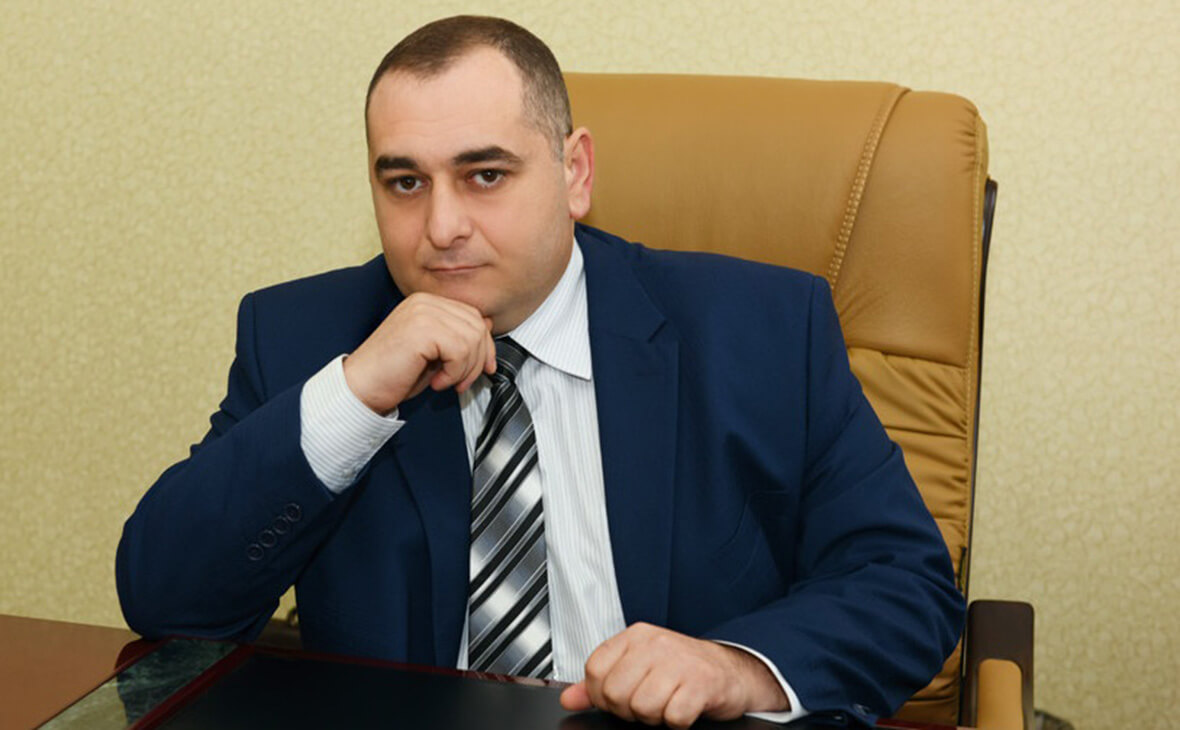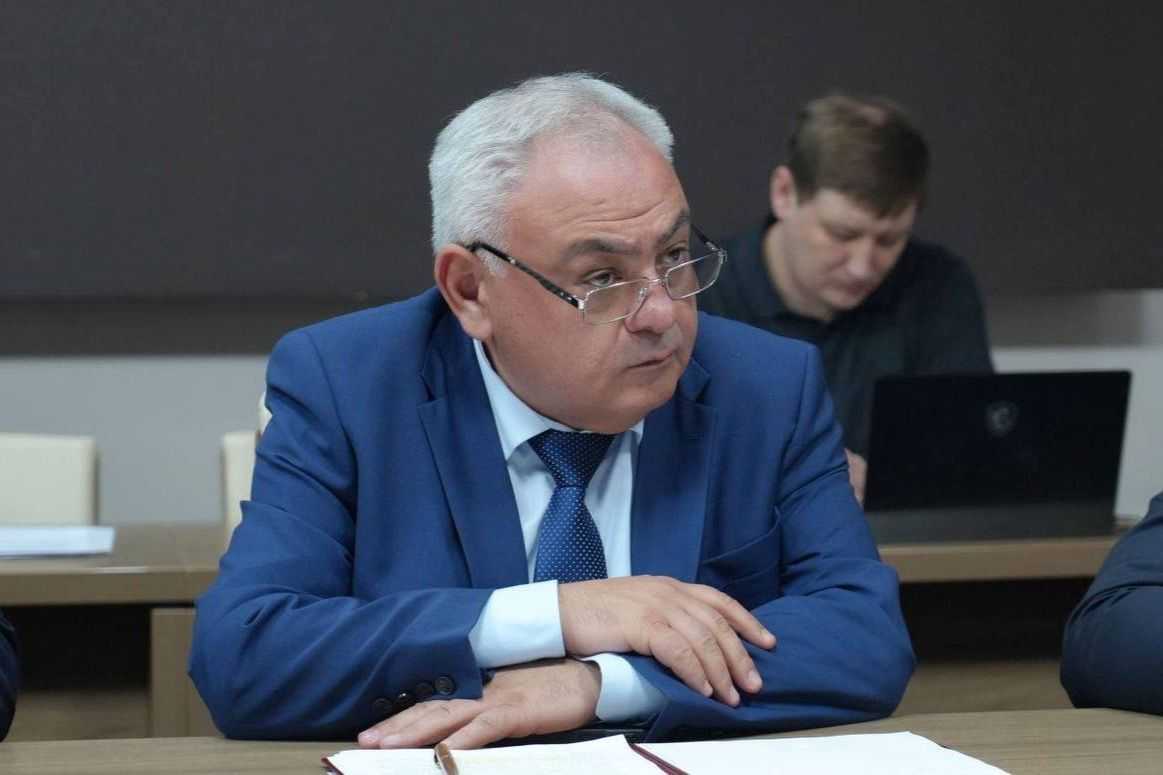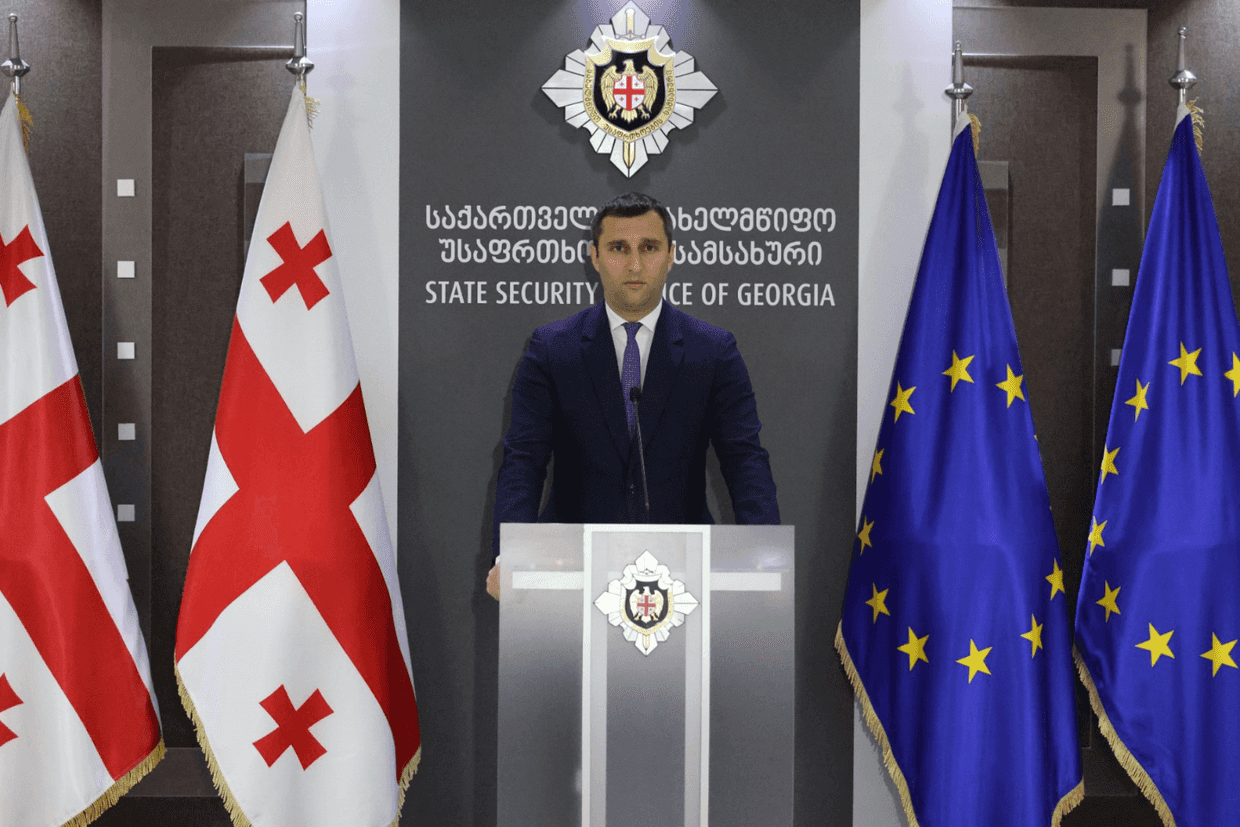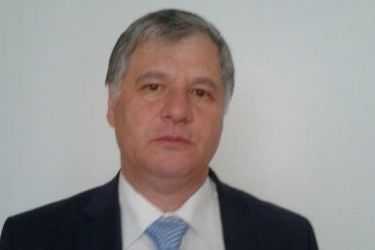

The head of Gazprom’s local subsidiary in the Russian Republic of Daghestan has been arrested suspected of stealing gas, covering the cost by illegally adding gas debts to other people’s accounts.
On 17 December, a court in the Daghestani capital, Makhachkala, remanded Vladimir Anastasov in pre-trial detention for 10 days.
Anastasov was general director of Russian state-owned gas giant Gazprom’s Daghestani arm, Gazprom Mezhregiongaz Makhachkala.
A source in Daghestan’s Federal Security Service (FSB) told OC Media that Anastasov was detained by Russian FSB agents on 15 December in Saint Petersburg attempting to board a flight to Ukraine, where he is from.
Anastasov took an official holiday from work two weeks before his arrest but was supposed to return to work on 14 December.
On 9 November, after searches of his office at Gazprom Mezhregiongaz Makhachkala, Anastasov was interrogated as a witness in an investigation into an alleged fraudulent scheme in which gas debts were illegally registered to people’s accounts.
Zarina Abazova, the head of the subscribers report department at the local Gazprom subsidiary, was detained on 8 November as part of the investigation.
The Ministry of Internal Affairs of Daghestan told OC Media that Abazova was turned in by the head of the company’s Karabudakhkent District department, whom she allegedly threatened with dismissal if he refused to fraudulently assign debts to subscribers.
The ministry said that real unaccounted losses of ₽36 million ($530,000) in Karabudakhkent District were hidden in this way, with consumers making up the shortfall.
The ministry said the same scheme was found to be operating in Daghestan’s Buynaksk District, costing local residents an estimated ₽16 million ($230,000). Law enforcement agencies opened five criminal investigations into the cases in early November.
On 4 December, Gazprom Mezhregiongaz Makhachkala reported that in the first 10 months of 2018, people and companies had stolen ₽1.5 billion ($22 million) of gas from the company. They said they had started more than 4,300 legal challenges, but that most of them were not prosecuted.
‘Take immediate action’
According to Gazprom Mezhregiongaz Makhachkala, outstanding gas debts in Daghestan amount to more than ₽36 billion ($530 million), one of the highest among the subjects of the North Caucasus Federal District.
Daghestani daily Chernovik reported in April that large numbers of complaints emerged in the spring of 2018 about the registration of debts for gas that consumers had not used.
According to them, artificial debts began to appear on people’s bills after Moscow and Gazprom’s central management demanded an improvement in debt collection for consumed gas and a decrease in the republic’s total debt to suppliers.
On 29 November, Russian President Vladimir Putin ordered the Russian Government and Prosecutor General’s Office to review the fuel and energy situation in Daghestan and submit reports before 1 March 2019.
Putin ordered them to ‘take immediate measures to identify, suppress, and prevent theft of gas, oil and oil products’.
On 5 December, at a meeting of the Government of Daghestan, the republic’s prosecutor Denis Popov noted that ‘there were some inaccuracies in determining the amounts of debts, because there are incidences where gas industry workers deliberately register fictitious personal accounts of non-existent subscribers to conceal embezzlement and abuse consumers’.
The head of Daghestan, Vladimir Vasilyev, told the officials at the meeting that if they ‘would not not give up their shameful past and would not begin to work in good faith’, they should write their letter of resignation.
At a meeting on 17 December, Vasilyev said that the arrests of Abazova and Anastasov did ‘huge damage to the image of the republic’.
He promised to ‘create all the conditions for fraudsters to be punished, for people to be protected, and for the quality of gas and electricity to meet standards’.
‘They couldn’t imagine the scale of corruption’
Eduard Urazayev, an economic observer and former press minister of Daghestan, believes that Vladimir Vasilyev is trying to restore Daghestan’s image by fighting corruption.
Urazayev told OC Media that while the amounts being embezzled from budgets and state property may not be as large in monetary terms in other regions and in Moscow, corruption ‘has grown into the everyday life of a Daghestani’.
He said that this prosecution was ‘a measure to improve the financial discipline of officials who […] became a threat to the system of centralised executive power’.
Urazayev said corruption in Daghestan was aggravated during Ramazan Abdulatipov’s time as head, and that Abdulatipov had promised a lot but acted differently, creating the appearance of successful government activities.
‘Many complaints about him were directed to the federal authorities and he was actively criticised by a number of experts and representatives of civil society’.
‘Shortly before the presidential elections in Russia, the authorities attended to a low rating of trust in the republican authorities and changed Abdulatipov to Vasilyev’.
Urazayev argued that the more than 200 corruption investigations launched and the arrest of officials indicated the intention to ‘if not eradicate, then significantly reduce the scale of corruption’ in Daghestan.
However, according to Urazayev, the anti-corruption campaign lacks the legislative grounds to check if officials’ incomes correspond to their expenses or to involve civil society in public monitoring.
He also said that the government should extend it’s investigations to cover allegations against a number of high-ranking officials being involved in violent criminal offenses.
But some in Daghestan have remained sceptical of the local government’s fight against corruption. Daghestani blogger Ibragim Ramazanov told OC Media that arrests in the republic were examples of fighting corrupt individuals, not fighting corruption.
According to him, no systematic changes have been applied to anti-corruption bodies in the republic, with these bodies often helping to cover up corruption.
According to Ramazanov, the fight against corruption in Daghestan intensified after the threat of terrorism was minimised.









